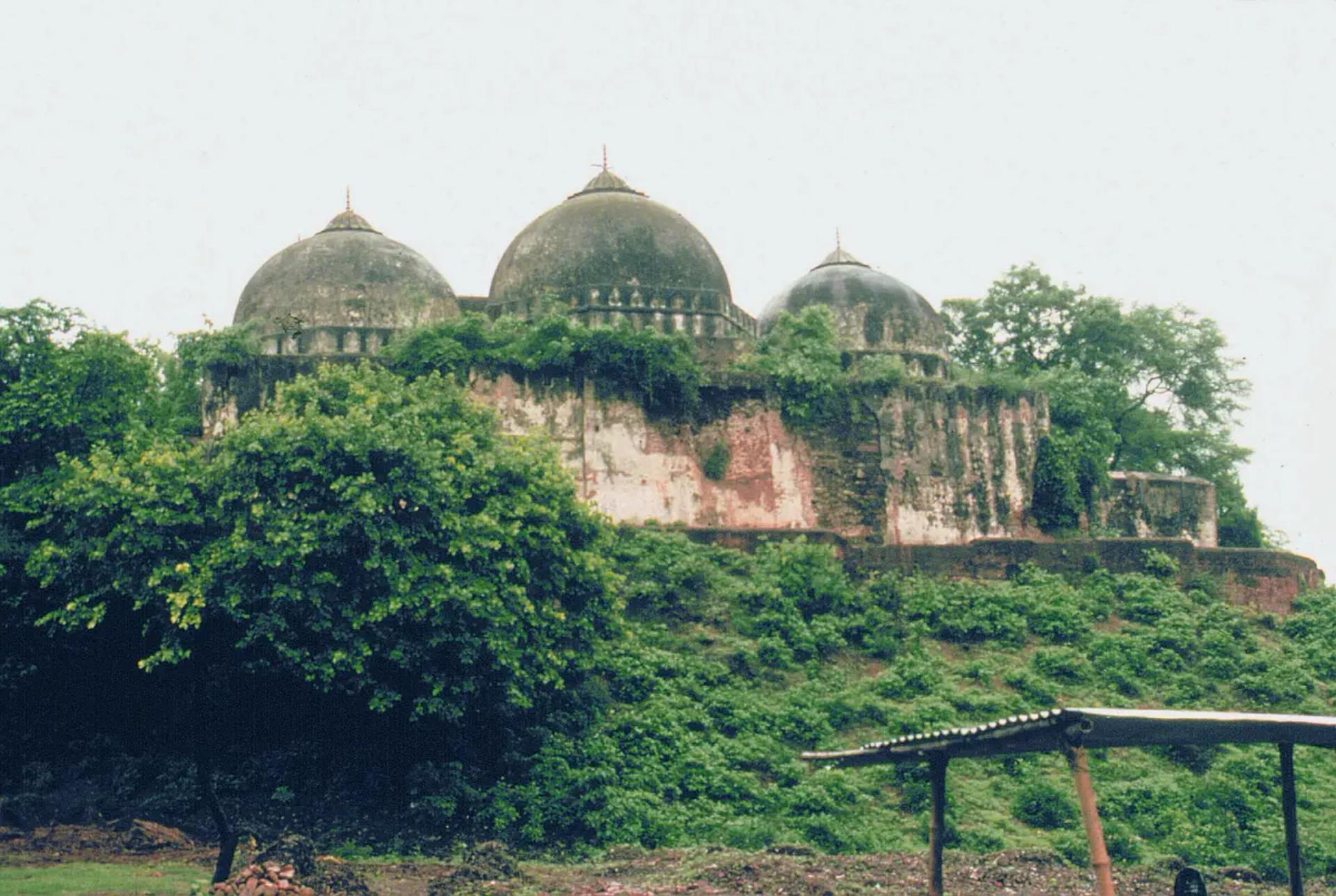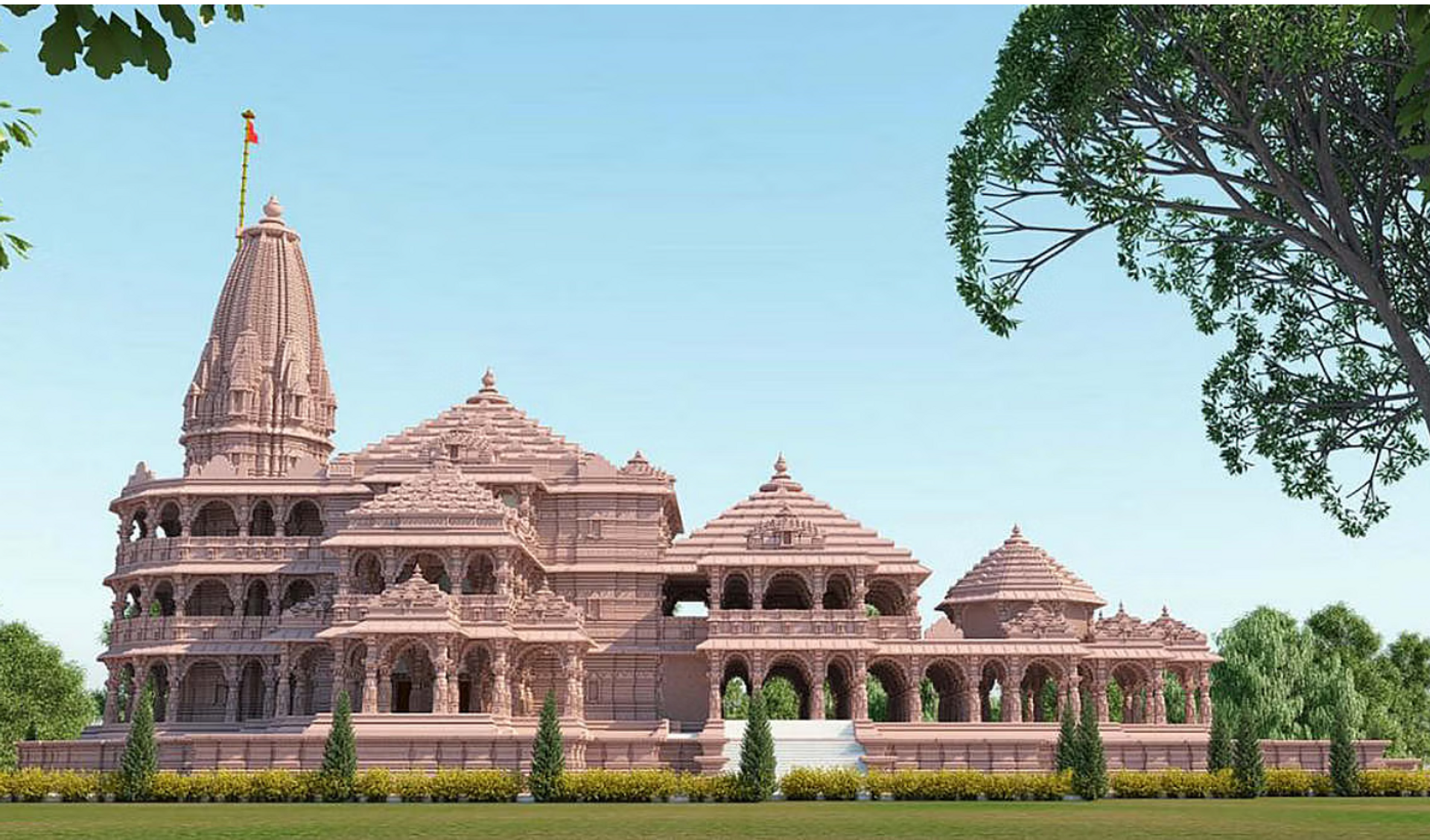The long-awaited inauguration of the Ram Mandir, an imposing Hindu temple in Ayodhya in northern India, will happen on January 22 in a grand ceremony attended by a lot of India’s most senior officers. The temple was constructed on the location of the previous Babri Masjid, which was controversially demolished by a mob of Hindu extremists in 1992. Their leaders are affiliated with the far-right paramilitary group Rashtriya Swayamsevak Sangh (RSS) and its political wing the Bharatiya Janata Occasion (BJP), which now runs the nation’s coalition authorities. Communal tensions have elevated within the nation for the reason that Hindu nationalist BJP got here to energy in 2014. Different mosques in India are more and more underneath risk of destruction.
“The demolition of the Babri Masjid was unlawful and immoral,” mentioned documentary filmmaker Anand Patwardhan, whose 1992 movie Aries title, depicts a marketing campaign to demolish mosques. He termed the occasions in Ayodhya as an try to reimagine India. “Nobody is crying over the lack of a constructing construction,” he mentioned. “It is a lack of our worldly spirit.”

The Babri Masjid in Ayodhya, photographed earlier than it was demolished by Hindu extremists in 1992
© Frederick M. Asher
The Babri Masjid is a three-domed monument inbuilt 1528, allegedly on the directions of the Mughal king Babur. For the reason that nineteenth century, Hindus have claimed that the mosque was constructed on high of a temple and that the land was the birthplace of the Hindu god Rama. In December 1949, members of the Hindu Mahasabha, a Hindu nationalist political group related to the RSS, smuggled an idol of Rama right into a mosque. Quickly after, the mosque was seized by the federal government. In later years, members of RSS-affiliated teams launched a motion to ascertain a temple on the web site. Lastly, on December 6, 1992, the mosque was razed to the bottom throughout divisive speeches delivered by leaders of the Bharatiya Janata Occasion and the Rashtriya Swayamsevak Sangh-affiliated Vishva Hindu Parisha. No less than 2,000 individuals, principally Muslims, have been killed within the inter-tribal riots it sparked, in one of many worst chapters of recent Hindu sectarian battle.
“The Politicization of Archeology”
Within the a long time that adopted, the location of the razed mosque was the topic of a fancy and extremely publicized authorized battle, fueled by shifts in India’s political management. The BJP has lengthy promised to construct a Rama temple on the web site and reiterated this aim in its manifestos for the 2014 and 2019 basic elections. On November 9, 2019, the Supreme Court docket, India’s highest judicial physique, issued a closing judgment on the case. The ruling was criticized by some commentators for deeming it unlawful to plant idols of gods inside mosques and demolish constructions, however dominated in favor of a Hindu group constructing a temple on the location.
Specialists consider there isn’t a conclusive archaeological proof {that a} temple existed beneath the mosque.In keeping with Robert Bevin, creator of the e-book The destruction of reminiscence: structure at warfare (2006), the Ayodhya case demonstrates the “politicization of archeology”. Internationally, he tells us, “archeology’s attachment to nationalist initiatives of the state or nation is a standard thread.” The Artwork Newspaper.

Proposed mannequin of Ram Mandir complicated
An enormous complicated is being constructed to accommodate the temple, which is 161 toes tall and has 5 domes. The truth is, on account of this temple, a number of improvement initiatives are underway throughout Ayodhya, however not with out controversy. Many residents reportedly claimed the developments unfairly displaced them from their properties. Ram Janmabhoomi Teertha Kshetra, the belief liable for constructing the temple, is “prepared to demolish any temple that isn’t conducive to its design and relocate it elsewhere,” India At the moment reported. camper van. Though many information shops have acknowledged that the temple might be inaugurated on January 22, its development continues to be not full. It was seen as a victory for the BJP to ship on a key ballot promise shortly earlier than India’s basic election in a couple of months.
Additional threats to Islamic heritage
Patwardhan mentioned the occasions in Ayodhya inspired individuals to fan related tensions elsewhere. In recent times, a number of heritage websites, significantly mosques, have come underneath risk from Hindu nationalists. In early 2019, residents of Uttar Pradesh, the place Ayodhya is positioned, tried to bury a Nandi statue (a bull-shaped statue that, in keeping with historical Hindu scriptures, guards the doorway to Shiva’s abode) close to the temple’s partitions. The Gyanvapi Mosque is a centuries-old construction positioned adjoining to the Kashi Vishwanath Temple. In mid-September 2023, 4 individuals have been arrested for making an attempt to position a statue of Hindu goddess Sarasvati contained in the Kamal Maula mosque in Madhya Pradesh.A type of arrested, a Hindu priest activist, informed reporters camper van The goddess appeared to him in a dream, “simply as she appeared to those that discovered the idol of Ram Lalla in Ayodhya… If she had not achieved so, there would have been no case and there would have been no Ramman Deere”. The 2 disputes are presently earlier than Indian courts.
In 2022, a lawsuit filed on behalf of native Hindu farmers (reportedly backed by the Maharaja) alleged that the 800-year-old Shamsi Jama mosque in Budaun, Uttar Pradesh, a nationwide heritage web site, was “ The unlawful construction was constructed on a Tenth-century Shiva temple that had been demolished. In the identical yr, a 300-year-old mosque was destroyed on a freeway in Uttar Pradesh’s Muzaffarnagar district. In January 2023, the Shahi Masjid, a Sixteenth-century mosque within the metropolis of Prayagraj within the Uttar Pradesh area, was bulldozed throughout a highway widening mission.
“After the Babri Masjid verdict, group power has grown in braveness; their eyes are on our locations of worship”
Lately, on December 24, 2023, the New Delhi Municipal Company (NDMC) issued a discover asserting that it has utilized to the Heritage Conservation Committee (HCC) of the Ministry of City Improvement for the demolition of the Sunehri Bagh Masjid, a small Mughal-era construction positioned within the coronary heart of Delhi roundabout. In keeping with the discover, that is to “guarantee sustainable visitors across the roundabout”. It gave a few week to submit objections to the proposal.
DK Gupta, who runs a small snack bar underneath the mosque, mentioned The Artwork Newspaper He labored there for a few years. He famous the dearth of transportation within the space. “The federal government now is aware of why it did this,” he mentioned. The Sunehri Bagh Mosque is listed as a Grade III heritage web site by the HCC – a class for buildings that evoke “architectural, aesthetic or sociological curiosity”. Improvement plans for town of New Delhi in the course of the British colonial rule demolished a number of buildings however preserved many traditionally vital websites, together with this mosque.
Historian and heritage conservationist Sohail Hashmi mentioned the Sunehri Bagh mosque was related to freedom fighter Maulana Hasrat Mohani, who drafted India in 1949 Members of the Constitutional Conference. Mohani was additionally a well-known poet who coined the favored slogan “Inquilab Zindabad” (Lengthy Dwell the Revolution). “Each time the Constituent Meeting met, he would keep on this mosque,” Hashmi mentioned. Authorities officers supplied Mohanie a stipend for his keep within the capital, however in keeping with Hashemi, the liberty fighter refused: “I’m a freedom fighter and I’m not making an attempt to generate income from this,” he’s believed to have mentioned. “Destroying this mosque will eradicate all related proof. For that reason alone, the constructing must be preserved. It has historic significance,” Hashemi mentioned.
“In current occasions, there have been persistent makes an attempt to erode our medieval architectural heritage,” the Indian Historical past Congress, a nationwide group of historians, mentioned in a decision opposing the NDMC utility. “After the Babri Masjid verdict, the braveness of group forces has elevated; their eyes are on our locations of worship.” Arshad Maida, head of a faction within the Muslim clerical group “Jamiat Ulema-e-Hind” Arshad Madani tells us telegraph India. “We are going to take all measures to make sure the security of mosques; the federal government ought to keep away from partaking in unlawful actions.”

